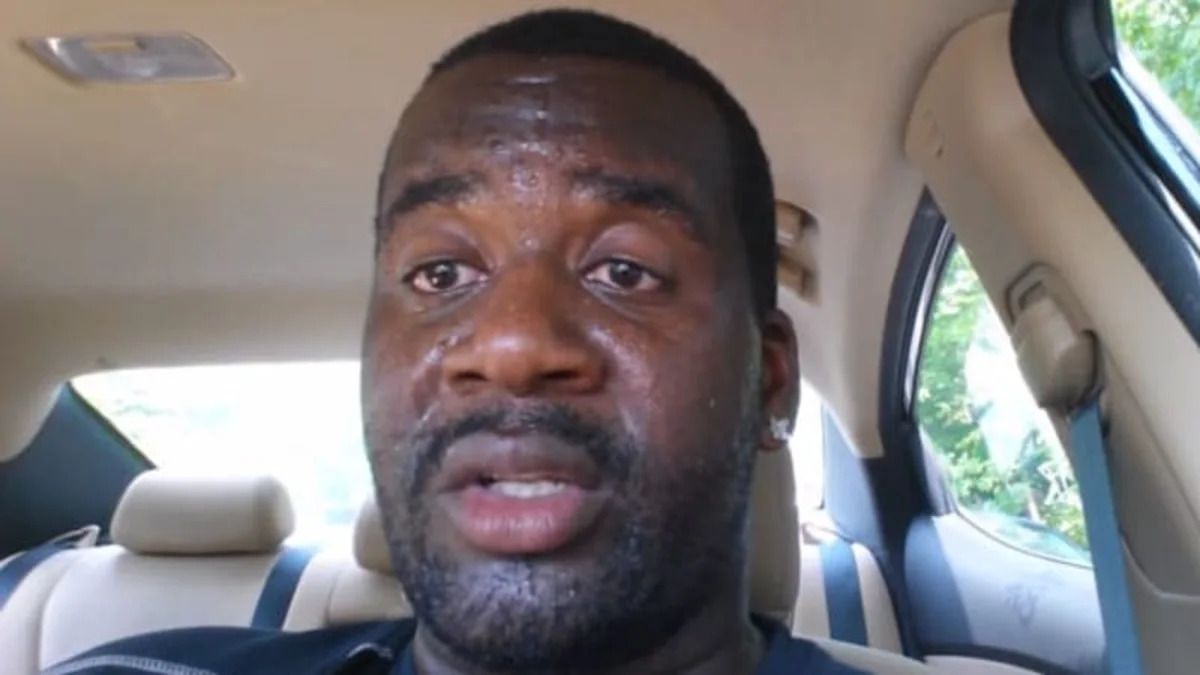After five minutes of sitting in a hot car, Terry Williams was drenched with sweat. After ten minutes, he felt like the air had been sucked out of his lungs. After 15 minutes, he got out of the car.
Not everyone has the chance to do that.
Every year, an average of 38 children are killed in the United States when they are trapped in hot cars for extended periods of time. Last month, Williams was overcome with sadness when he heard about the death of a Georgia toddler who had been forgotten in the back seat of his dad's car for several hours.
A Greensboro, NC resident and father of three, Williams made a video of his experience while he was in nearby Raleigh, NC, and posted it on YouTube, where he's challenged other adults to endure the conditions to better understand these tragic events.
"I hope somebody will see my video, and someone, somewhere out there, maybe they'll think twice before they get up and leave their car," Williams tells Autoblog.
A car hauler by trade, he sat in the front seat of a Toyota Corolla for his experiment in 90-degree conditions. In the video, sweat pours off his face as he looks into the camera and pleads with parents and caregivers to remember. "We go through this every, every year, year after year after year," he says.
One point to remember: In the Georgia case that compelled Williams' reaction, police suspect the boy's father, Justin Ross Harris, may have intentionally left his son to die. But such cases are rare. It's not usually malice; it's forgetfulness. In the majority of cases, a parent accidentally leaves a child behind, often when a routine is interrupted.
Children's bodies absorb heat at rates three to five times faster than adults because they're not fully developed. Which showcases just how dire such conditions can be, because even ad adult like Williams didn't last very long.
"Right at about 15 minutes, I started losing my breath, and I was like, 'Nah, I'm getting out,'" he said. "It was hot outside as well. But just to get outside that door and breathe some fresh air, it was like getting air blown back into your lungs."
Scroll down below to watch Williams' video for yourself.
Not everyone has the chance to do that.
Every year, an average of 38 children are killed in the United States when they are trapped in hot cars for extended periods of time. Last month, Williams was overcome with sadness when he heard about the death of a Georgia toddler who had been forgotten in the back seat of his dad's car for several hours.
So he decided to do something about it. Two days after the death of Cooper Harris, Williams subjected himself to similar circumstances so he can understand how treacherous conditions can become – and so he could share that with you.He's challenged other adults to endure the conditions to better understand these tragic events.
A Greensboro, NC resident and father of three, Williams made a video of his experience while he was in nearby Raleigh, NC, and posted it on YouTube, where he's challenged other adults to endure the conditions to better understand these tragic events.
"I hope somebody will see my video, and someone, somewhere out there, maybe they'll think twice before they get up and leave their car," Williams tells Autoblog.
A car hauler by trade, he sat in the front seat of a Toyota Corolla for his experiment in 90-degree conditions. In the video, sweat pours off his face as he looks into the camera and pleads with parents and caregivers to remember. "We go through this every, every year, year after year after year," he says.
One point to remember: In the Georgia case that compelled Williams' reaction, police suspect the boy's father, Justin Ross Harris, may have intentionally left his son to die. But such cases are rare. It's not usually malice; it's forgetfulness. In the majority of cases, a parent accidentally leaves a child behind, often when a routine is interrupted.
Children's bodies absorb heat at rates three to five times faster than adults because they're not fully developed. Which showcases just how dire such conditions can be, because even ad adult like Williams didn't last very long.
"Right at about 15 minutes, I started losing my breath, and I was like, 'Nah, I'm getting out,'" he said. "It was hot outside as well. But just to get outside that door and breathe some fresh air, it was like getting air blown back into your lungs."
Scroll down below to watch Williams' video for yourself.


Sign in to post
Please sign in to leave a comment.
Continue